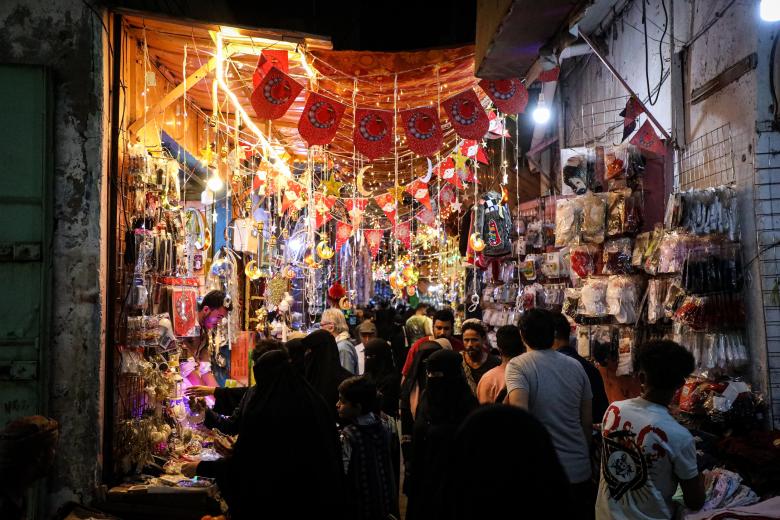
A local market in the city of Crater in Aden, March 20, 2023 (Najeeb Al Mahboubi)
Last updated on: 26-03-2023 at 1 PM Aden Time

The feelings of joy have dominated suffering. Despite the hard economic conditions, people are keen to buy Ramadan decorations”
Abdullah Al-Shadli and Raad Alrimi (South24)
Streets decorated with lights and lanterns, jubilant children walking behind their families who buy goods from busy markets and street stalls.
This is what the holy Ramadan looks like in South Yemen. Despite the suffocating economic crisis and the excessive price hike, people try to receive this distinctive month with all that they can even if it is a little bit.
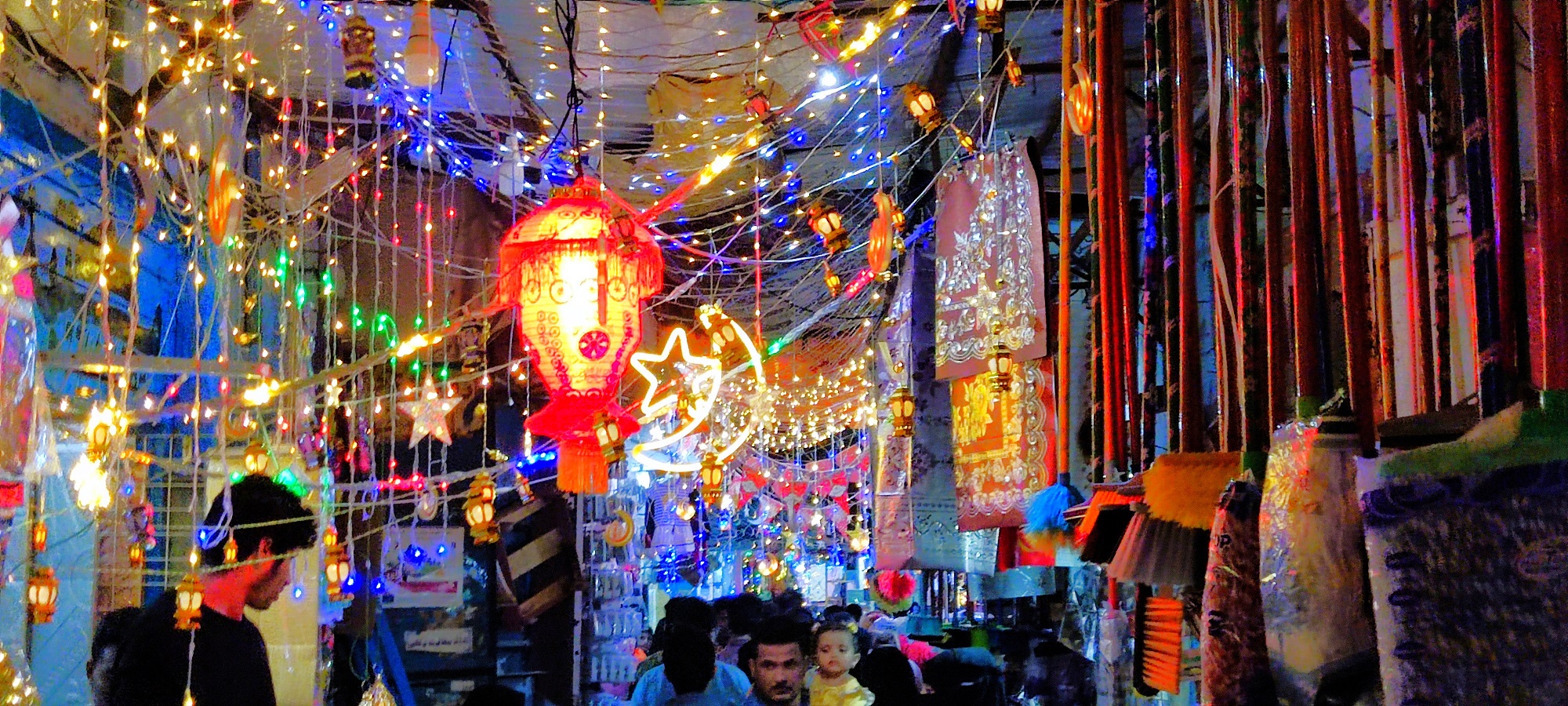
A street decorated to welcome the month of Ramadan in the city of Crater, Aden, March 21, 2023 (South24 Center)
For many citizens who spoke to “South24 Center”, Ramadan has its own rituals, traditions and spirituality which the war didn’t manage to take away even during its climax. However, the level of popular preparation and joy are not like what they were in previous years due to the spread of poverty among many families as well as the poor basic services, especially electricity.
The high prices in the cities of South Yemen are among the biggest troubles for people. The price inflation in parallel with the low or no salaries have transformed thousands of families into victims of dangerous poverty. In Ramadan, this escalating problem has impacted popular preparations which have reached its minimum level or are non-existent for a remarkable percentage of people.
Ramadan preparations
The hike in prices and living hood has not hindered people from buying Ramadan decorations. However, rationalization was obvious as lanterns which people used to buy are less than normal this year. Some families resorted to substituting them in a way that suits their economic conditions.
The cheap collectibles whose price doesn’t not exceed 200 Yemeni riyals per one piece such as balloons, stamps and accessories on which Ramadan slogans were drawn have witnessed a big turnout this year.
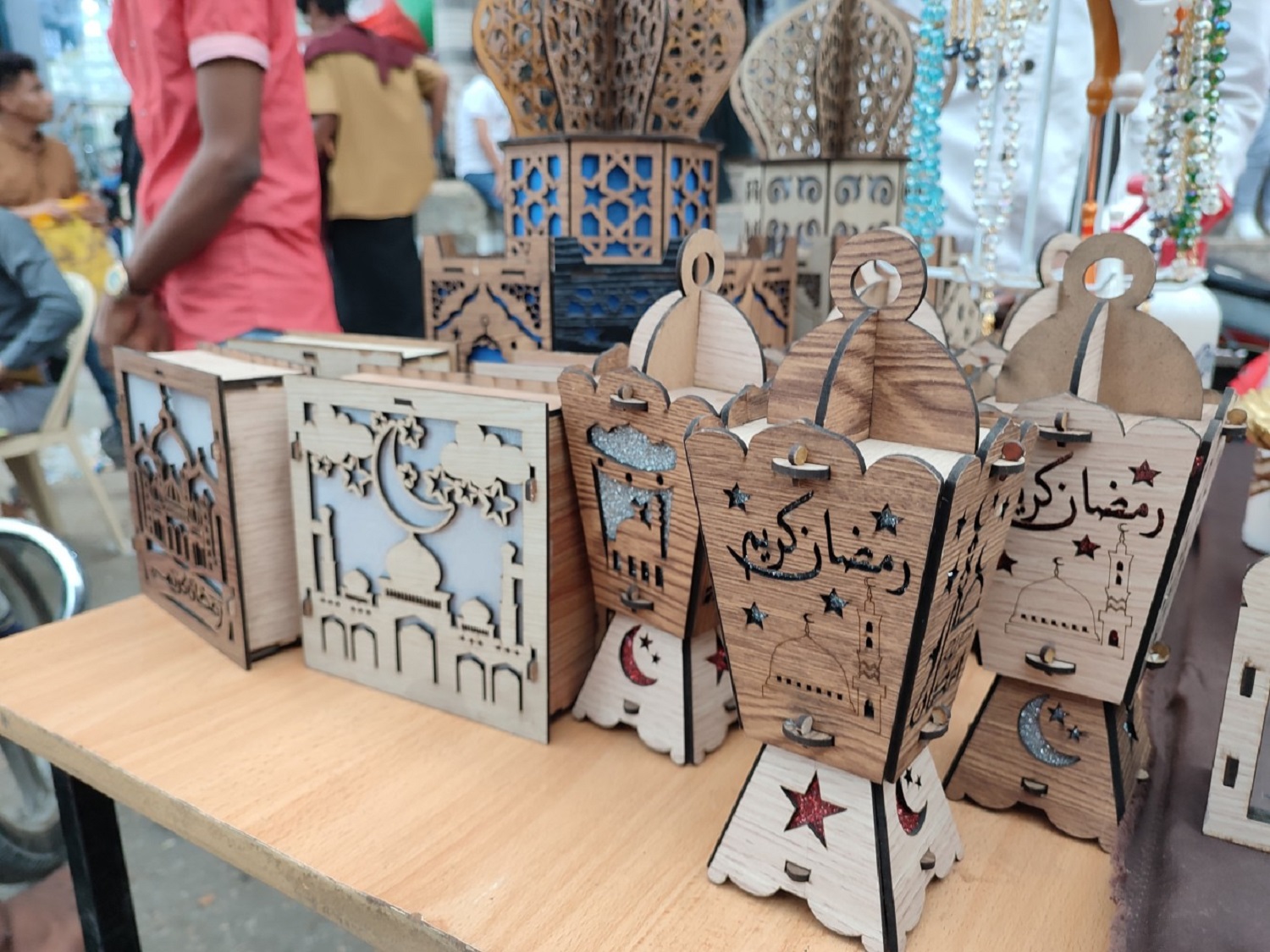
Ramadan collectibles. A popular market in the city of Mukalla in Hadramout, March 21, 2023 (South24 Center)
In recent years, some families used to make Ramadan decorations at home with clothes and to color the electrician lamps in bright colors. Other families take this idea as a project to earn some money.
Several days ago, the historic streets of Crater in the capital, Aden, have been crowded with flocks of people who are keen on buying Ramadan decorations to prettify their balconies and roofs as well as shops. From mosques, the voice of Ramadan chants can be heard including “You who are fasting, welcome the month of Allah. May God bring it back to us, and to all of you".
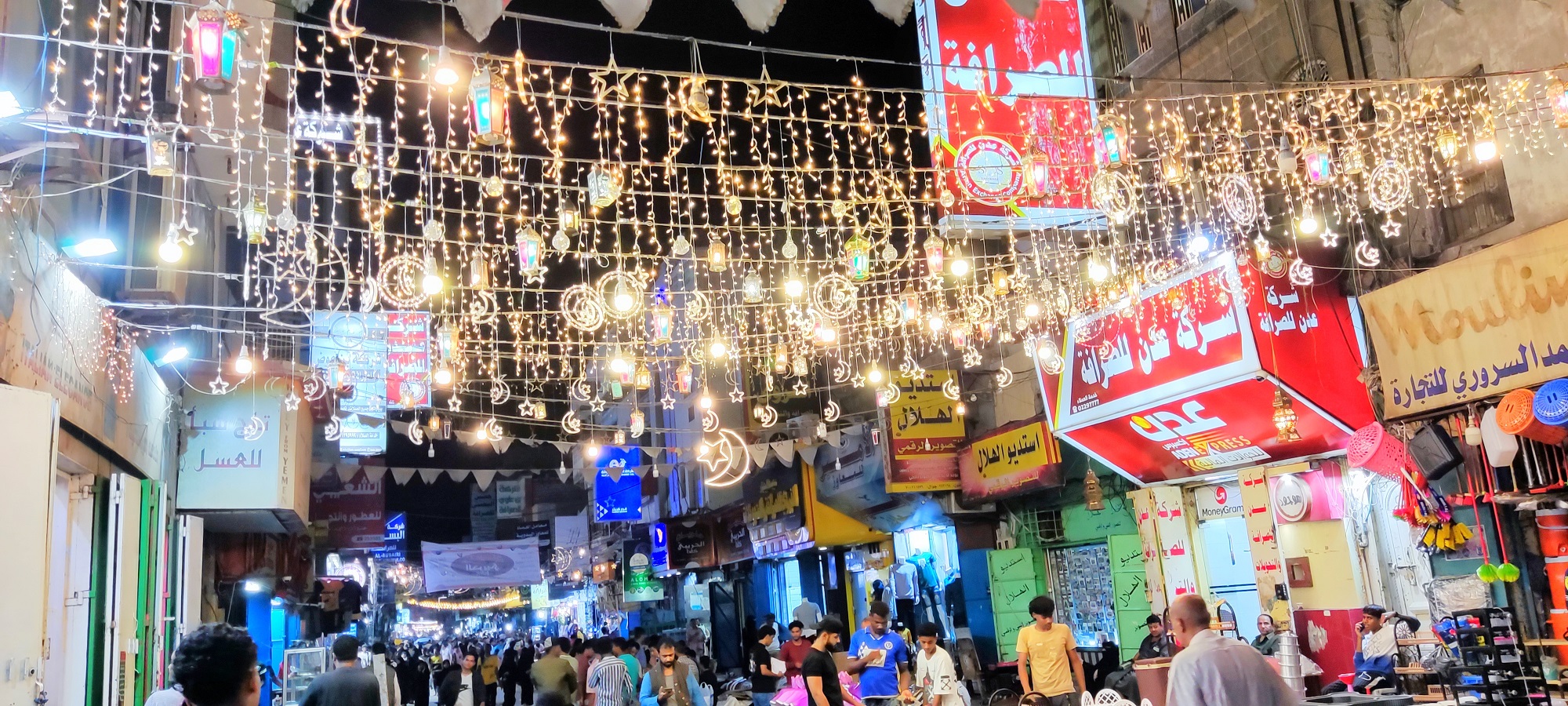
A street decorated to welcome the month of Ramadan in the city of Crater, Aden, March 21, 2023 (South24 Center)
These Ramadan circumstances and preparations are not different in other governorates in South Yemen. As for preparations in Abyan, community activist Mohammed Ali Al-Taweel told "South24 Center": "With the approaching holy Ramadan, most streets and lanes have been decorated with accessories. Moreover, Ramadan welcoming words are being written".
The activist pointed out that welcoming this month by religious oratorios are among the traditions of Abyan people with the advent of Ramadan".
Journalist Mervat Al-Rubaie explains how Lahj people welcome Ramadan. She told "South24 Center": "Lahji families prepare to receive this holy month in the best way by providing different food products to prepare special Ramadan feasts".
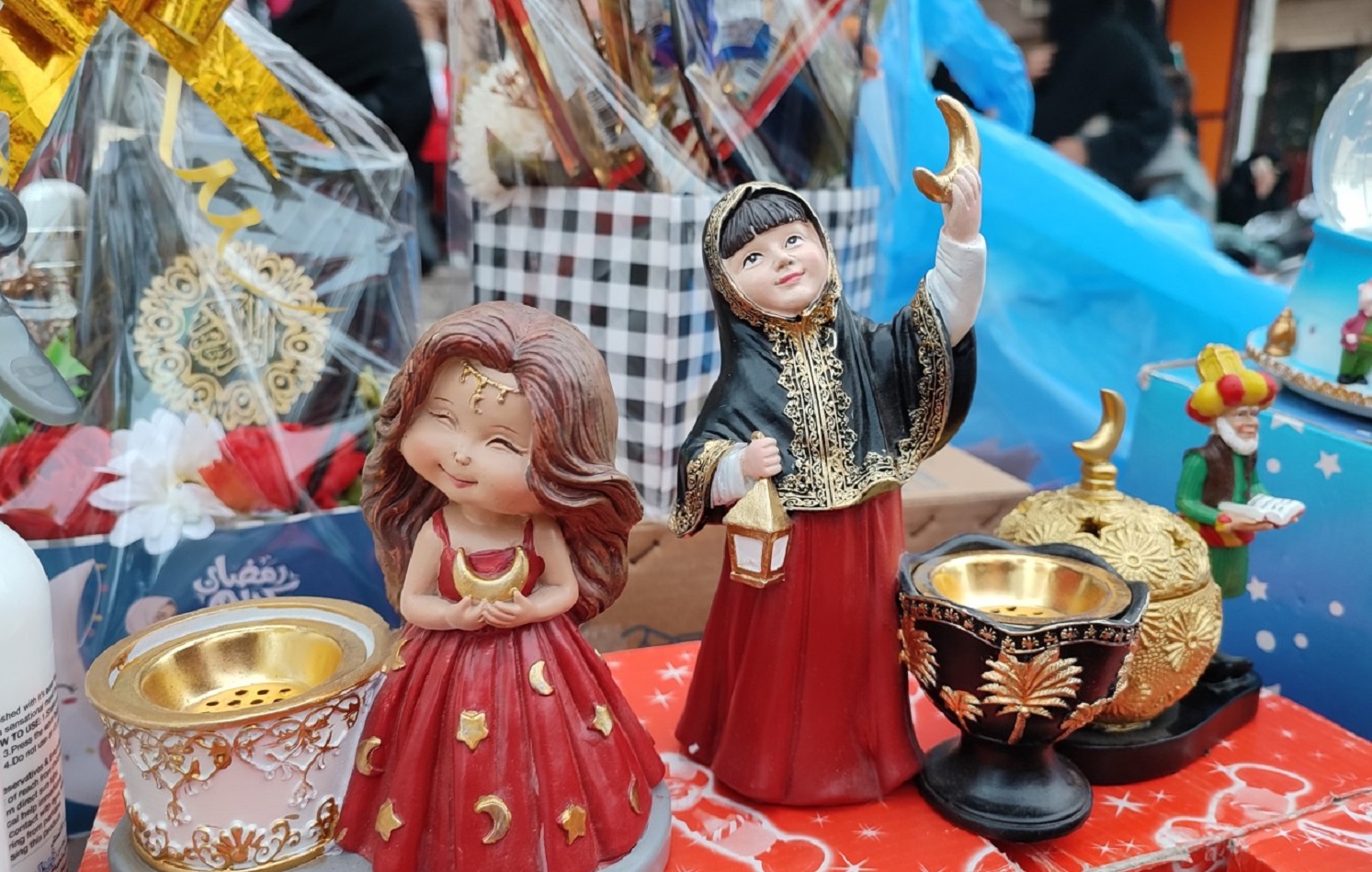
Ramadan collectibles, a popular market in the city of Mukalla in Hadramout, March 21, 2023 (South24 Center)
She added: "Mosques prepare themselves for performing Taraweeh prayers, Qiyam prayers and many other distinctive religious rituals. The feelings of joy have dominated suffering. Despite the hard economic conditions, people are keen to buy Ramadan decorations and utensils for cooking which is a tradition by women of Lahj".
She continued saying: "Henna inscription on the hands of women and girls as well as wearing special female clothes, especially on the 1'st day of Ramadan are also among manifestations to welcome this month".
Price hikes
Ahlam Khaled, an employee in Aden Post, has not been able to buy all her Ramadan needs. She told "South24 Center" that "What she managed to buy will be sufficient for 20 days".
She said: "Nothing remained from my salary this month. I spent it by purchasing Ramadan items. We experience hard days in Aden. We still suffer from war ramifications whose economic and livelihood burdens have not ended yet".
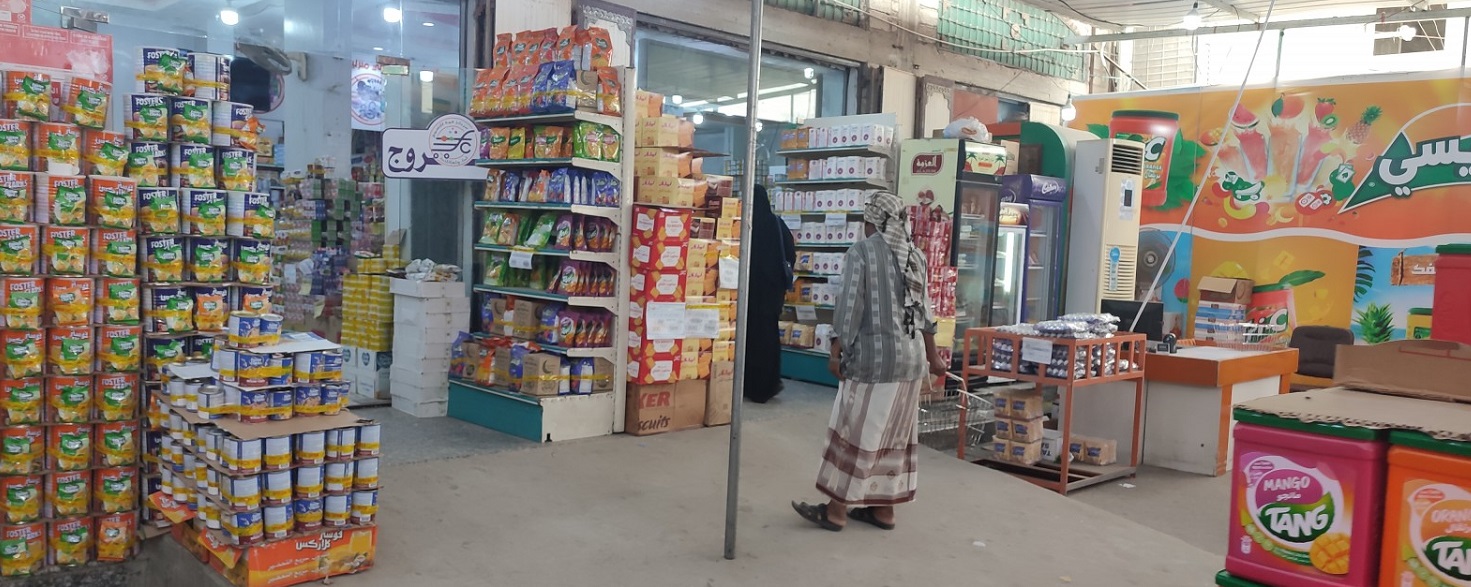
A food shop in Mukalla in Hadramout, March 21, 2023 (South24 Center)
Resident Shamsan Saleh, from Al-Dhalea governorate, stresses that the price hikes have somewhat reduced Ramadan joy. He told "South24 Center": "I tried to save as much money as I could a month ago to provide consumable items. However, unfortunately, I failed to buy all what the family needs".
He added: "How can we buy Ramadan needs while the salary of the teacher, which is equal to 70,000 riyals in most cases, is only sufficient to buy some wheat, rice and cooking oil for a family consisting of few members?
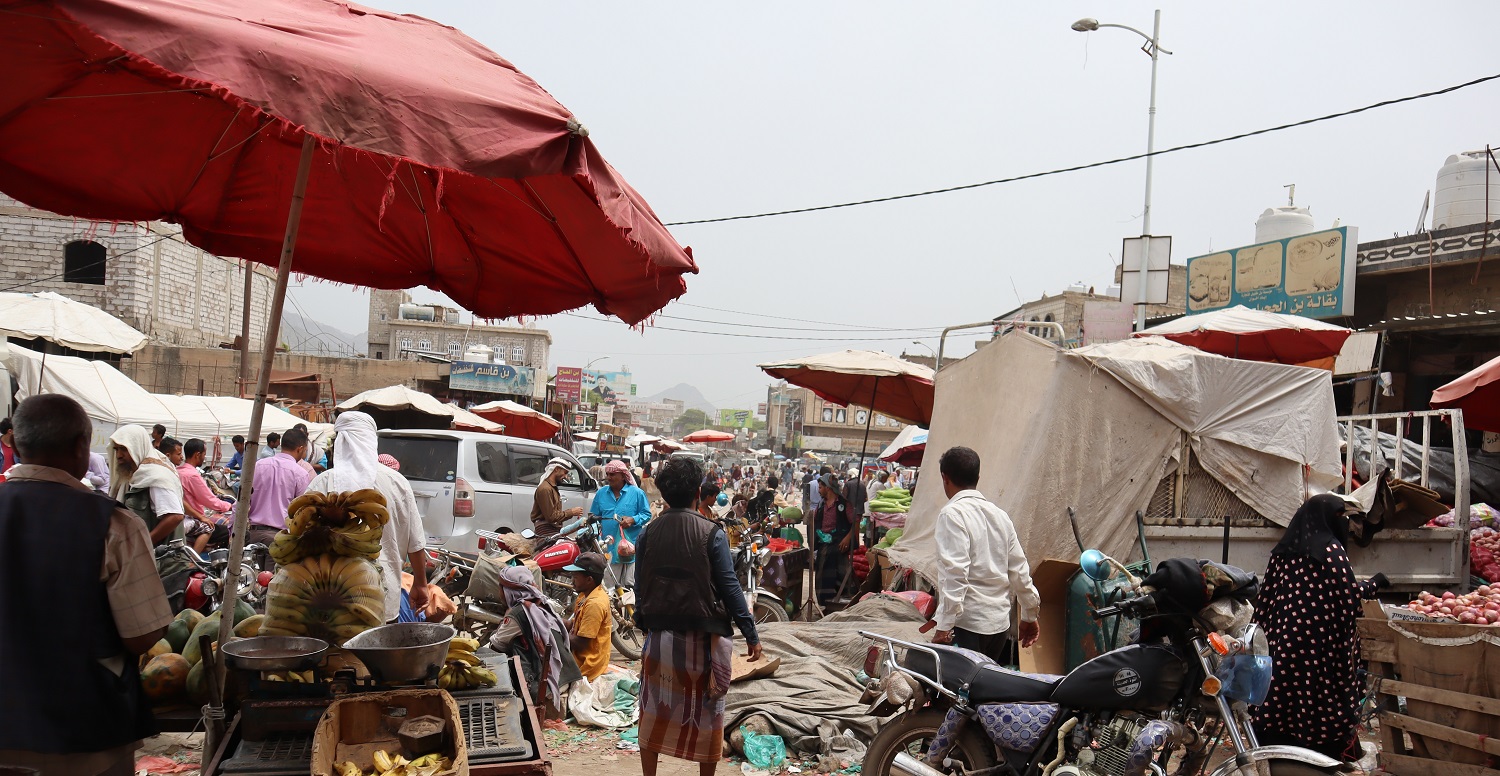
A local market in the city of Al-Dhalea (South24 Center's archive)
He noted that the salaries of soldiers have not been paid for long months, adding that good news came after 8 months by paying just two months of the Southern forces’ salaries. You can imagine how these soldiers, families and the low-paid teachers live".
Hadrami citizen Saeed Al-Shuaibi told "South24 Center": "I wait for my governmental salary which is likely to be paid with the advent of Ramadan. It is about 70,000 Yemeni riyals (60 dollars) by which I can buy a few things but I have no other option".
Salem Bin Hashhash, a food merchant in Mukalla in Hadramout, pointed out that food prices are still high despite talks about an improvement in the local currency. He told "South24 Center": "The price of 10 kilos of rice is 14,700 riyals, and 10 kilos of wheat is 7,000 riyals. These are very high prices, and the citizen always complains when he buys from us."
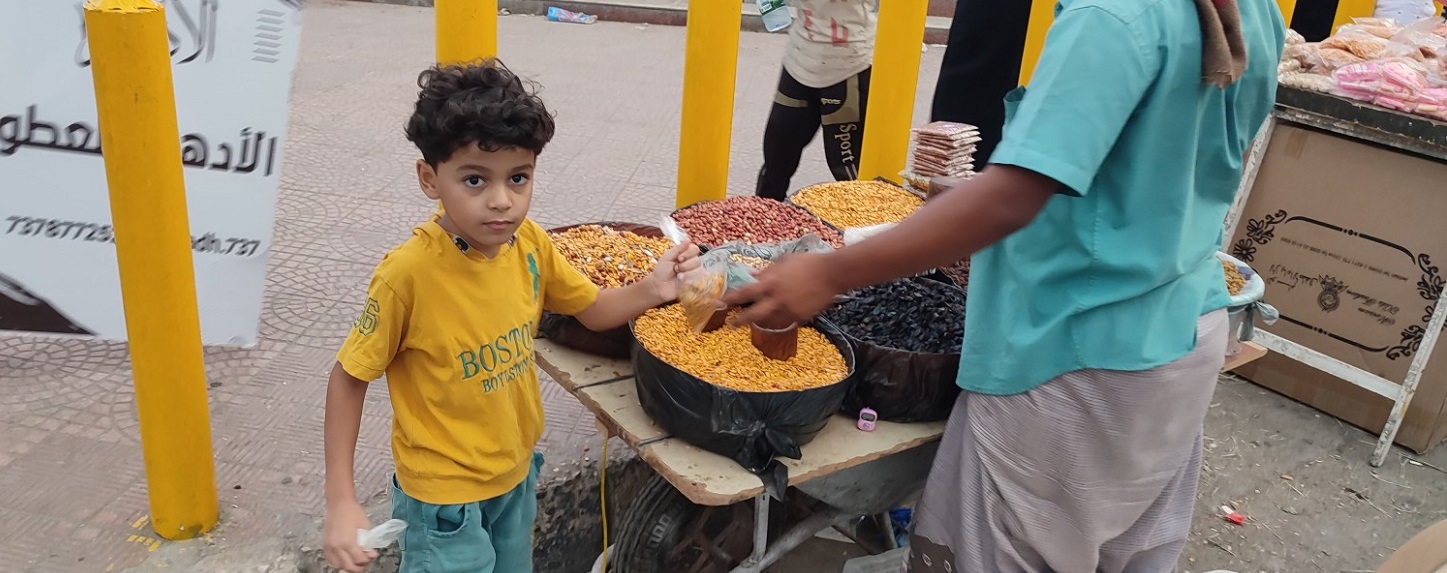
A child who buys some nuts and food additions in Mukalla in Hadramout, March 21, 2023 (South24 Center)
The merchant, who has sought to attract customers to his shop, said: "We can't do anything. We have nothing to do. We have been hurt".
Wholesaler Salah Bawazir claims that they suffer from continuous losses because of the local currency turmoil.
He told "South24 Center": "Some citizens do not understand commerce, and do not appreciate or know the losses that affect some of us".
Community activist in Hadramout, Wadi Bahmish, accuses merchants of exploiting the advent of Ramadan to increase prices as they know that people will buy at any cost".
Retired educator Sallama Al-Haj expressed her resentment towards the price hikes in Shabwa". She told "South24 Center": "Everyone notes that installment selling is accompanied by price difference. Citizens buy certain goods as a debt. Later, the cost of such debt increases after a while due to the increase in foreign currencies’ prices".
Activist Mohammed Al-Mahri, from the governorate of Al-Mahra, said that Prices in his governorate and Socotra [a strategic island archipelago near the Gulf of Aden] are the highest ever in South Yemen.
He told "South24 Center": "Here in Al-Mahra, prices are beyond comparison except for Socotra, where the prices of everything in it have reached record levels, starting with foodstuffs and commodities to fuel".
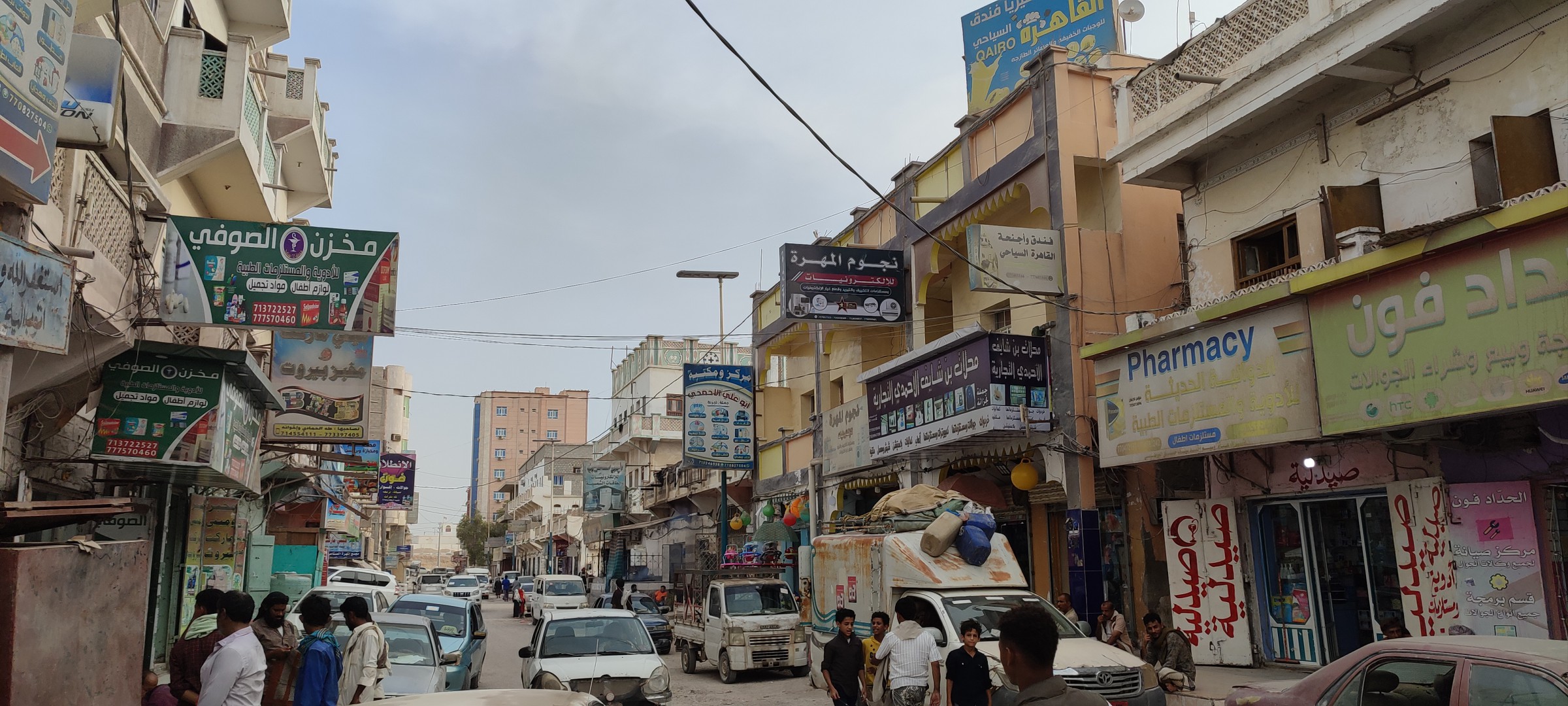
The city of Al-Ghaydah in Al-Mahra governorate (South24 Center's archives)
Due to the high prices, some Ramadani dishes have disappeared from the tables of many families. A local in a market in Al-Mukalla told "South24 Center": "Al-Bakhmari [a famous Hadhrami meal made from dough] and samosa [rolls of bread, french fries and vegetables] are no longer available for many families”.
He added: “These dishes and others cost a lot and have currently become a luxury. Locals in Aden, Mukalla and others didn’t conceal their appreciation of the decision to ban exporting fish taken by the Ministry of Fisheries a few weeks ago, and resulted in a noticeable decrease in fish prices”.
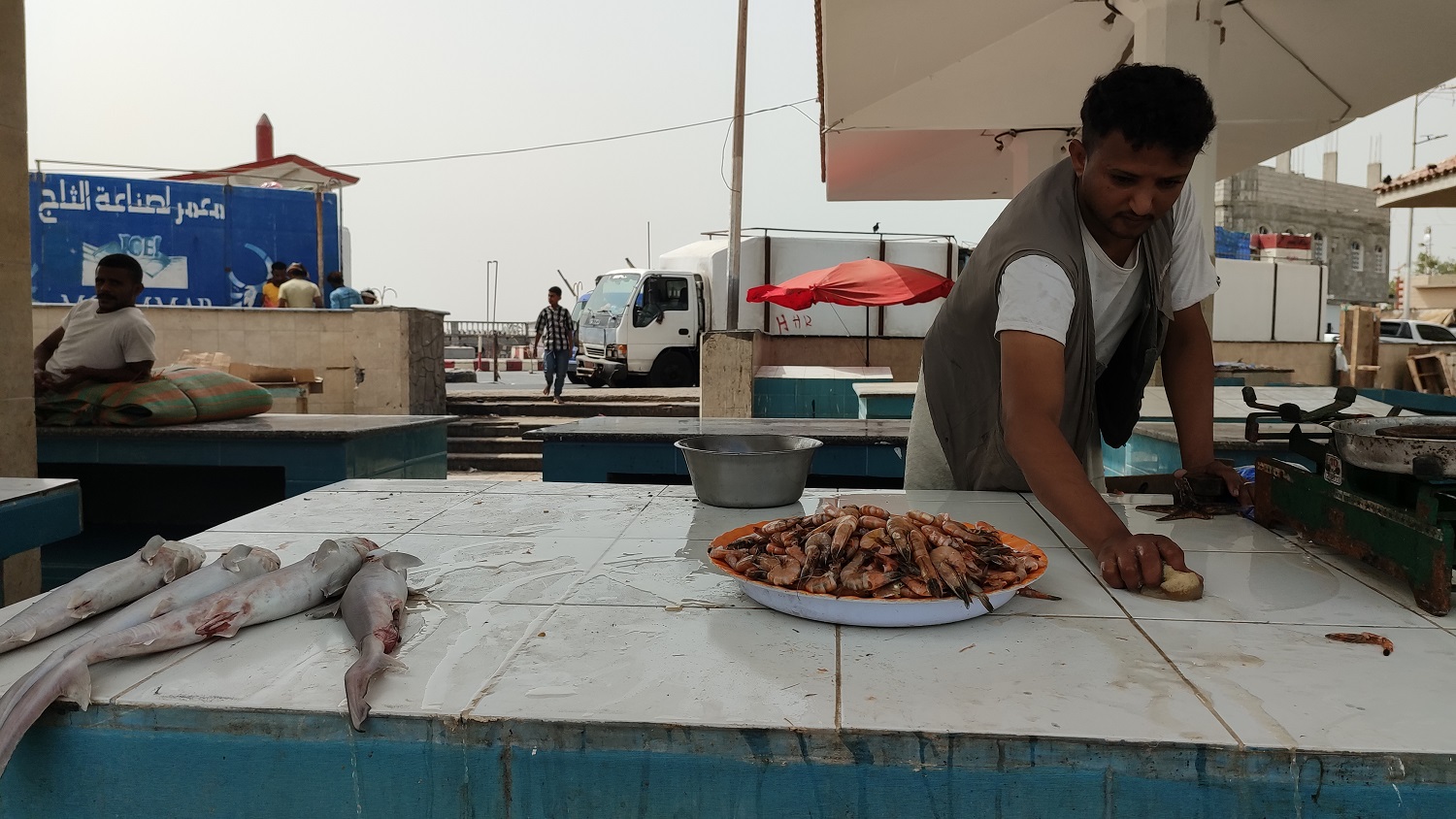
A fish seller in Aden (South24 Center’s archives)
Poor services
Along with price hikes, the service crisis in South Yemen deepens people’s sufferings, especially in Ramadan. Electricity and water basically are the two most wanted services during this month. However, they are also the most weak and absent. This is amid big pressure added by hundreds of displaced persons and immigrants in Aden and other governorates.
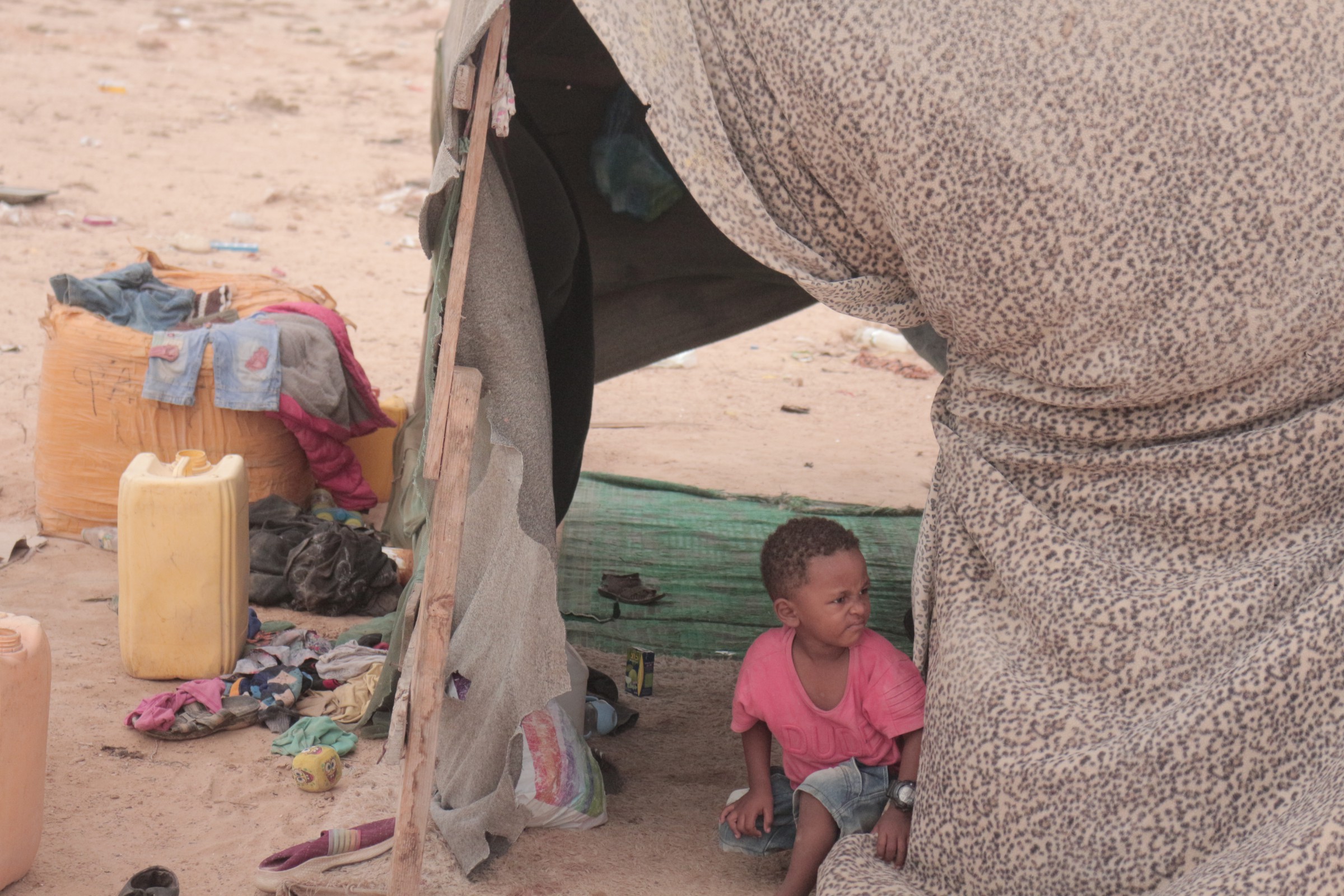
A tent for displaced people in Al-Mahra (South24 Center’s archives)
Days ago, Aden Electricity Corporation appealed to the Yemeni government to provide fuel to operate stations after entering the phase of gradual decrease of the generational capacity which is expected to reach its climax in Ramadan. However, there has been no response.
On Wednesday, power outages lasted for more than 5 hours every 7 hours. The neighboring governorates of Aden, such as Al-Dhalea and the rural areas of Abyan and Lahj suffer from power outages of more than 18 hours per day.
Hadramout has been hit by a suffocating crisis in domestic gas for about one year. In the previous months, the severity of the crisis increased. At the beginning of the current month, some residents in Mukalla blocked streets in the city and their gas cylinders in front of people to protest the escalation of the crisis.